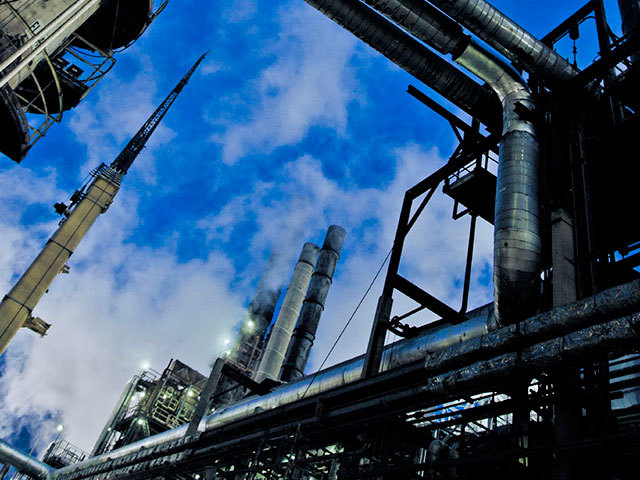
The surplus in global crude supply is smaller than the 1.8 million barrels a day Kuwait estimated last month, and prices will continue to recover, Oil Minister Ali Al-Omair said.
The Persian Gulf state producer plans by next year to add 40 more drilling rigs and raise production capacity to 3.15 million barrels a day, a 5% increase from today, Hashem Hashem, chief executive officer of state-run Kuwait Oil Co., told reporters at a conference in Kuwait City.
“We were expecting oil prices to recover in the second half, but they recovered faster than what we expected,” Al-Omair said Monday at the same event. “I expect oil prices to keep improving.”
Rising US supply is contributing to a worldwide crude surplus. Qatar and the United Arab Emirates, OPEC members like Kuwait, estimated the excess at 2 million barrels a day, while the producer group’s Secretary-General Abdalla El-Badri said Jan. 26 the surplus was 1.5 million barrels.
The Organization of Petroleum Exporting Countries, which supplies about 40% of the world’s oil, decided not to cut output in November, leaving more expensive operators to reduce supply.
Brent crude futures, a benchmark for more than half of the world’s oil, gained 8% in London this year, after plunging 48% in 2014. Prices rose as much as 94 cents in trading Tuesday, and the contract was at $61.97 a barrel at 1:05 p.m. on the London-based ICE Futures Europe exchange.
“Brent is near $62, and there is a sense of optimism surrounding this issue,” Qatar’s Energy Minister Mohammed bin Saleh Al Sada said in Doha, the Qatari capital. The general trend in prices has changed over the past two weeks, he said.
Kuwait Oil has signed at least $12 billion in development projects during the last two years and will have 120 rigs in service by 2016 compared with its current force of 80, according to Hashem, the Kuwaiti company’s CEO.
“We are growing our activity from the drilling side,” he said.
The state producer will boost Kuwait’s daily output capacity by 150,000 barrels of oil and 300 million standard cubic feet of natural gas, Hashem said. It will commission the first development phase of the Burgan oil field by the end of March, he said. Burgan is the world’s second-biggest field, after Saudi Arabia’s Ghawar deposit, and has a production capacity of about 1.7 million barrels a day.
Kuwait pumped 2.85 million barrels daily in January, making it OPEC’s third-largest producer, according to data compiled by Bloomberg. The Persian Gulf country has discovered new oil deposits and is appraising its reserves, said Al-Omair, the oil minister.
Kuwait had “positive” discussions Sunday with neighboring Saudi Arabia on their joint operations in the Neutral Zone, a border area where they’re jointly developing oil fields, he said.
Production at the shared Wafra fields, where a Chevron Corp. unit is the operator, has dropped 20 percent since October, two people with knowledge of the matter said Feb. 9. Kuwait stopped issuing work permits for Saudi Chevron employees at Wafra because Kuwait’s ministry of labor and social affairs halted services to the company, three people with knowledge of the matter said October 28. The development coincided with a shutdown of the shared Khafji offshore fields on October 16.
Recommended for you
